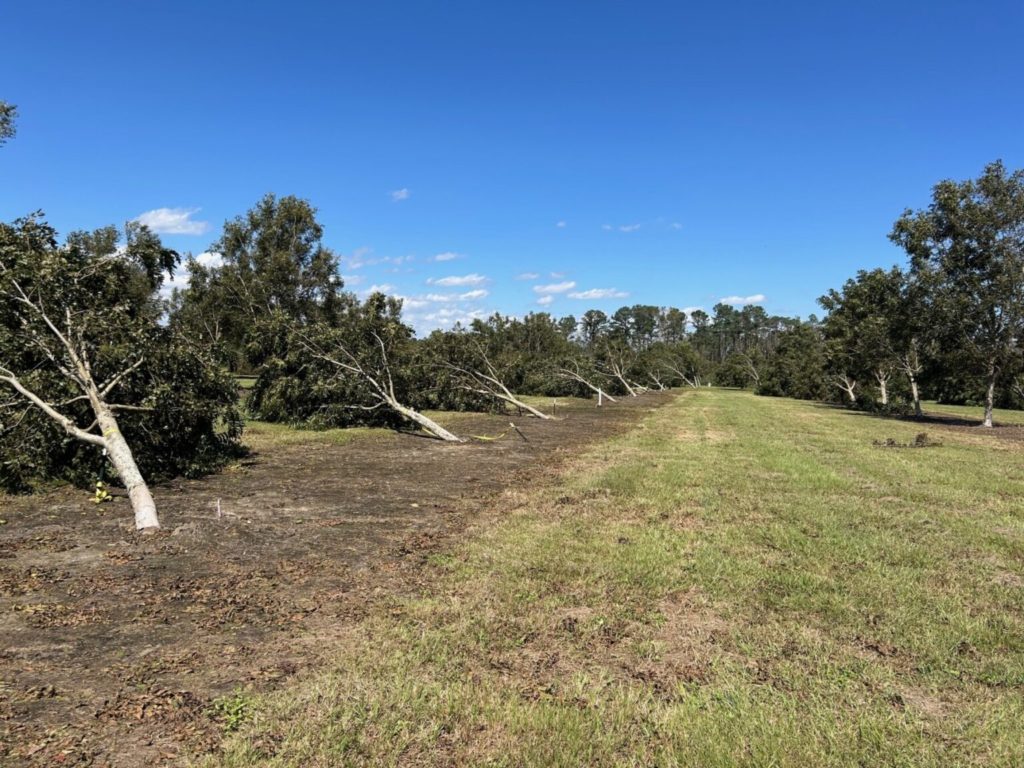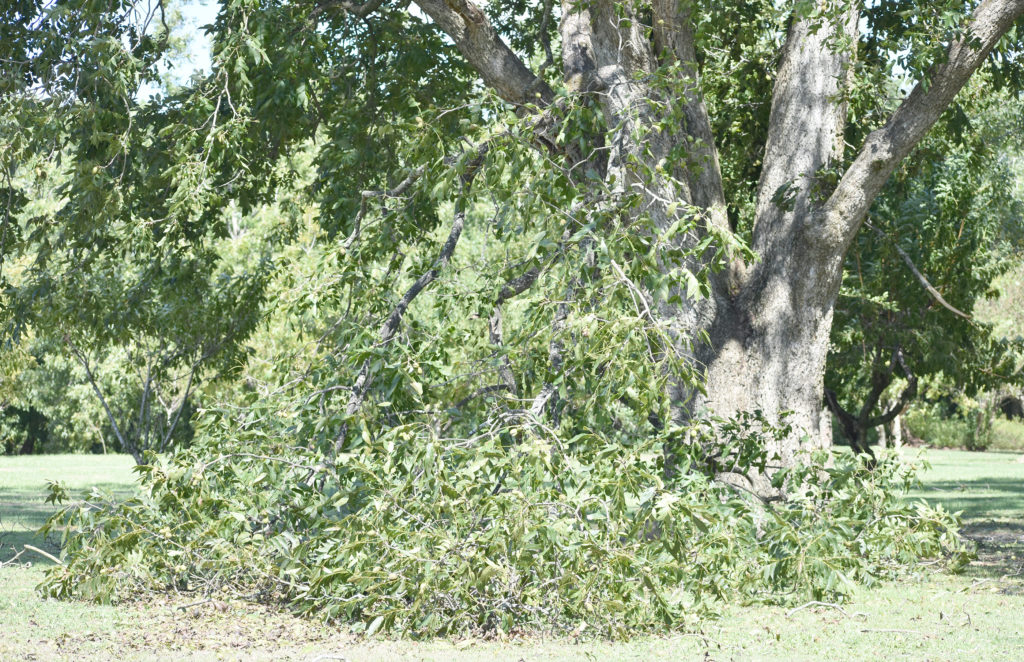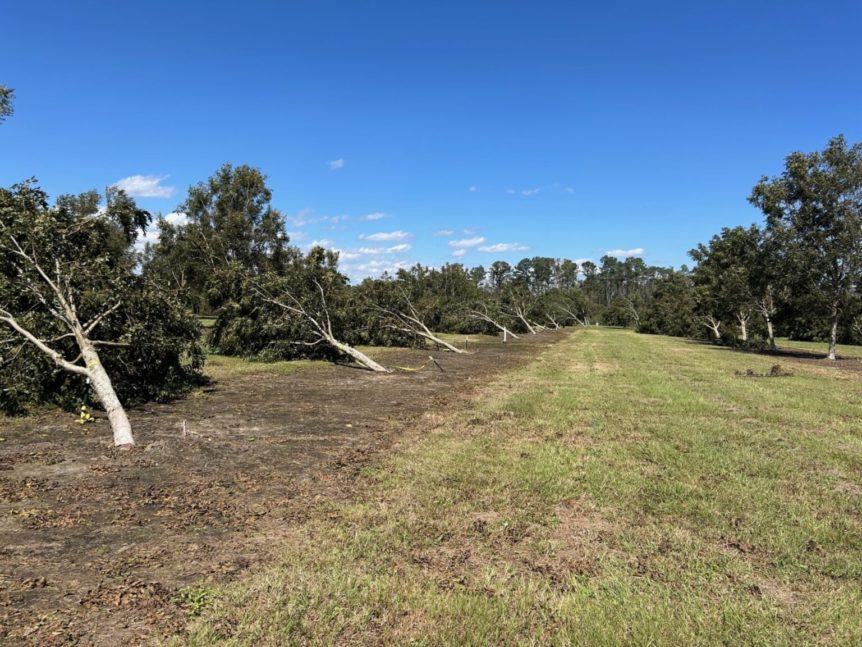
By Clint Thompson
It is hard to fathom Georgia’s pecan crop sustaining worse hurricane damage than what it sustained from Hurricane Michael in 2018. But that may have been the case following Hurricane Helene last week.
While a complete evaluation may not be available for some time due to power outages that remain throughout the state, a preliminary assessment shows this to be the most devastating hurricane Georgia has experienced in recent years – worse than Michael.

Lenny Wells, University of Georgia (UGA) Extension pecan specialist, highlighted in the UGA Pecan Blog that large trees (40 to 50 years and up) suffered about a 70% loss and younger trees suffered somewhere around a 40% loss in eastern Georgia.
Preceding Rainfall Made Matters Worse
The deluge of rainfall the day before the storm made landfall made it a much dire situation.
“I think from the stuff I’m seeing and people I’ve talked to, I think it’s just the fact that we had so much rain ahead of it, and when you get 90 mph to 100 mph winds and that kind of rain, (the trees) can’t hold up to that,” Wells said. “I never dreamed we would see those kind of wind speeds that far north.
“We tell everybody, and everybody knows already that several days before you’ve got one coming, to cut the irrigation off to try to get the ground as hard as you can. But with something like this, it didn’t matter. When you get that much rain before a storm, I think that’s one thing that made this one (really bad), besides the extreme wind speed.”
Georgia suffered a staggering $560 million loss to its pecan crop due to damages from Hurricane Michael.
According to the UGA Weather Network, Midville, Georgia, received 6.26 inches of rain.
Quarter of Georgia’s Pecan Acreage Severely Impacted
Wells estimates that the affected area in eastern Georgia comprises at least 23% of the state’s pecan acreage. Trees that were not completely lost were also broken up and had green nuts blown out, which will only add to the losses.
“For much of this area, I don’t think salvaging any crop that remains is a priority at this point. You can’t even get into many of these orchards,” Wells wrote in the blog. “Trees and debris will have to be removed before any consideration can be given to the possibility of harvest in those orchards where it still may be possible. There will be more than a few orchards in which there is simply nothing left to harvest.”
What Should Growers Do Now?
Growers need to contact their local Farm Service Agency (FSA) office as soon as possible to report and document damage and apply for any cleanup funds. Wells stress that in previous situations, the FSA has made it a rule to require growers to contact them before the cleanup and tree removal process begin.










